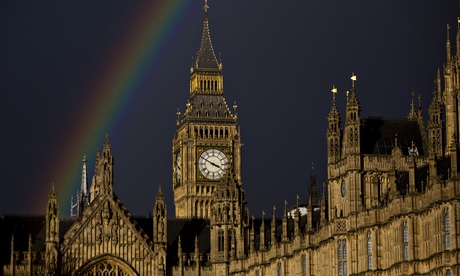In a report highly critical of what it called top clubs' "financial dependency of wealthy rentier owners," the all-party parliamentary group for mutuals called for the football authorities to promote supporter ownership "as a strategy for building trust and confidence for the long term".
The group, which is dedicated to promoting mutual values, argues that supporter-owned stakes in clubs, which are held democratically, are "a positive feature" and the football authorities should undertake a study of the German Bundesliga, which has a rule that over 50% of a club must be controlled by its supporters.
"The group wants to see a system of ownership based on what people can put back into the game rather than on what a wealthy elite can take out of football," the report said. "We should encourage club ownership based on the long-term sustainability central to mutualism, rather than the financial dependency of wealthy rentier owners."
Supporter representation on the FA council "is woefully inadequate", the group argued – there is just one fans' representative, Malcolm Clarke, chairman of the Football Supporters Federation, among more than 100 members of the FA's decision-making body.
The report also highlighted the financial insecurity of Supporters Direct, the initiative backed by successive governments to promote fan involvement in clubs, yet which the government does not fund. The organisation is now funded by the Premier League, but faces constant rounds of bidding and re-bidding for a relatively tiny budget before it is approved.
"Supporters Direct would have a stable and predictable funding from the proceeds of football," the report argues.
It calls on the government to "take a stronger line with football authorities," saying it should "urgently" prepare a draft bill and be prepared to legislate to effect these changes, after years of slow progress on supporter involvement.
In a joint response the Premier League and Football League reiterated their stance of being "neutral" on ownership types, arguing that supporters holding a stake would not be "intrinsically superior" to the current position in which clubs are overwhelmingly owned by single business people, often from overseas.
"Our priority, whatever their ownership structure, is that clubs are financially sustainable and that they make a positive contribution to the competitions they play in, the wider community and domestic football," the leagues' statement said.{jcomments on}
 HABERLER & MAKALELER
HABERLER & MAKALELER 


































